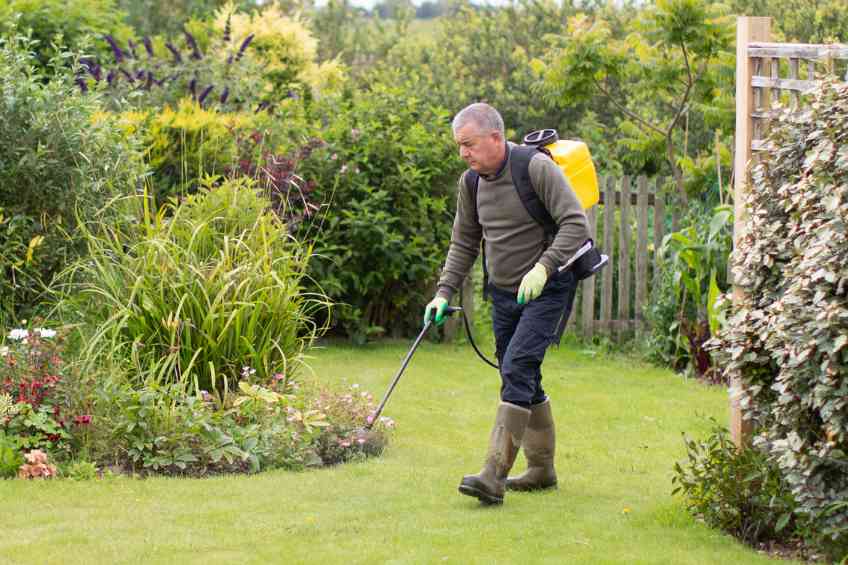By Sean Zucker –
A recent U.S. government-funded study has discovered that the widely used weed-killing chemical glyphosate continues to expose many people to cancerous agents. The research published in the Journal of the National Cancer Institute warns against its use.
Fortunately, natural lawn solutions are available in the battle against weeds.
The study builds off similar findings, looking at the impact of popular weed killer and the environment. “Glyphosate is the most widely applied herbicide worldwide, and its use has increased risks of certain hematopoietic cancers in epidemiologic studies,” the study states. “Animal and in vitro experiments suggest that glyphosate may induce oxidative stress, a key characteristic of carcinogens; however, evidence in human populations remains scarce.”
The research sought glyphosate’s impact on people by analyzing the urine of 268 farmers who reported recent and lifelong occupational use of the chemical. Specifically, the researchers examined a link between glyphosate exposure and urinary oxidative stress biomarkers.
“Oxidative stress is not something you want to have,” warned Linda Birnbaum, a toxicologist and the former director of the National Institute for Environmental Health Sciences, in an interview with The Guardian. “This study increases our understanding that glyphosate has the potential to cause cancer.” According to the news site, people encounter exposure by using products made with the chemical or eating contaminated foods.
Ultimately, the team found significantly higher levels of glyphosate in the farmers who reported regular use of the pesticide compared to those who did not. These results were cause for alarm.
“Our findings contribute to the weight of evidence supporting an association between glyphosate exposure and oxidative stress in humans and may inform evaluations of the carcinogenic potential of this herbicide,” the study concluded. The researchers highlighted certain cancers, such as lymphoma, myeloma and leukemia, as conditions that may develop from glyphosate.
These results come on the heels of a Centers for Disease Control and Prevention (CDC) report that found the chemical in the urine of an alarming percentage of children age six and older. Of the 650 participants in the study, nearly 90 percent had exposure to glyphosate. The CDC suggests that due to the pesticide’s use by farmers, it likely finds its way into various foods. In response, the U.S. Environmental Protection Agency (EPA) will investigate whether glyphosate should continue to be used by the public.
Most brands homeowners use contain the chemical at a lower concentration level than products used by commercial farmers. These brands currently deemed safe may not be soon following the EPA review.
On the consumer level, there are several natural alternatives to killing weeds without risking glyphosate exposure. The Spruce notes that mixing vinegar with dishwashing soap will create an effective weed-killing solution if the vinegar used has an acetic acid concentration above 11 percent. The home care outlet adds that rubbing alcohol and corn gluten meal or boiling water can often be enough to tackle weeds.
Mindbodygreen.com also advocates using vinegar to battle weeds and has recipes for seven different natural week-killing solutions that people can easily make at home.













